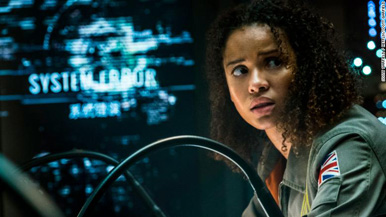|
|
The 400-Word Review: The Cloverfield ParadoxBy Sean CollierFebruary 5, 2018
A dozen sci-fi set pieces and a hundred ideas follow; some are explored, some are explained, others are not. The middle act of The Cloverfield Paradox is great, nail-biting horror; as the crew grapples with their circumstances, the tension inches close to that of Alien. The film can’t cross the finish line, owing to a repeated series of non-sequiturs and twists, most falling somewhere between unmotivated and utterly illogical. Fortunately, the cast is fantastic — Mbatha-Raw, the nominal lead, carries the film effortlessly — and the action is sufficiently captivating to maintain interest and attention. This series is to be commended for offering three very different films, each a mild success. While none have achieved greatness, there is easy competence to these films that suggests the Bad Robot crew could keep churning them out forever. And The Cloverfield Paradox strongly implies that is precisely what they have in mind. My Rating: 7/10 Sean Collier is the Associate Editor of Pittsburgh Magazine and a member of the Broadcast Film Critics Association. Read more from Sean at pittsburghmagazine.com/afterdark
[ Read more 400 word movie reviews ]
[ View other movie reviews ]
[ View other columns by Sean Collier ] [ Email this column ]
|

|
|
|

|
Thursday, October 31, 2024
© 2024 Box Office Prophets, a division of One Of Us, Inc.


